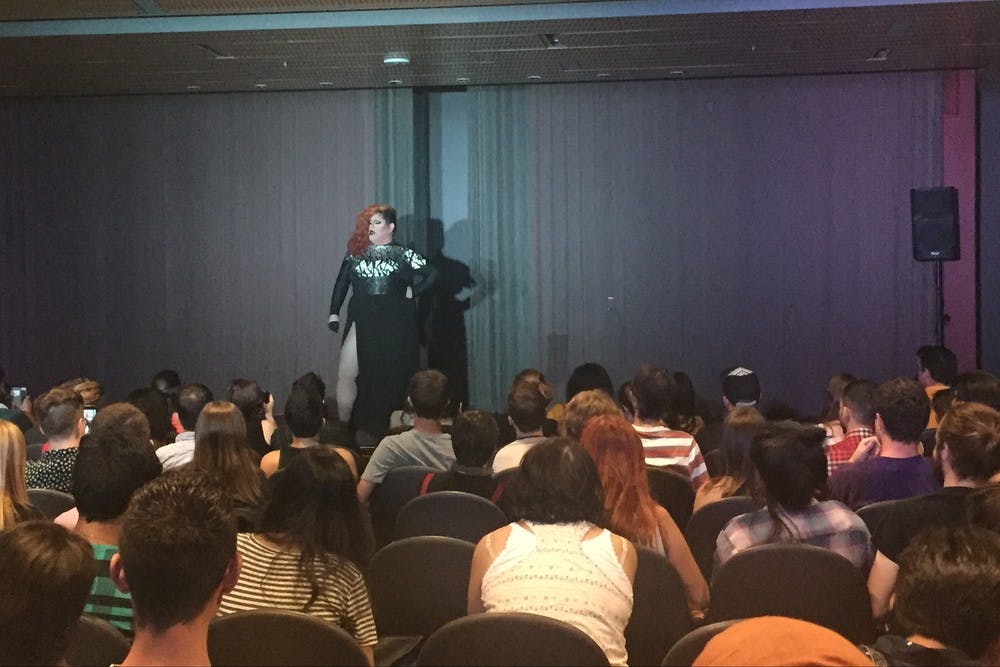Egypt strutted down a stage set up in the Memorial Union during the ASU Pride week's "Degender the Night and Drag Show." The black lights reflected off of her fluorescent yellow body suit, and as she twirled around the silver tassels on her outfit danced with her.
Her eyelids were dusted with glitter and her pink hair perfectly coiffed atop her head. For her, this is an art form; a celebration of being herself by taking on a different gender and new identity. However, many in the trans community see this as offensive.
Pride Week Kickoff! Degender the Night and Drag Show | FacebookEgypt, also known as Frankie Vallecillo, has been a drag performer since 2011. Vallecillo said drag queens and drag kings never come from a malicious or mocking place of male and female transformation, and it is meant to be an art form.
"Yes, it may be an exaggerated form of what a woman is, but its never a malicious or mocking matter," he said.
The drag community has always been a huge part of pride week (at ASU and elsewhere) as well as the LGBT community. But recently, there has been a shift in relation between the drag community and the LGBT, and drag performers are being banned from multiple pride events.
Pride organizers in Glasgow, UK have banned drag performers because they had been deemed as offensive to the transgender community.
A transgender woman wrote a letter to the pride organizers stating that drag performers should be banned from the local pride events because drag performers provoke negative views of the transgender community.
“I don’t think that drag should be included in the trans umbrella,” Erica Keppler, co-chair of Arizona TransAlliance, said.
Keppler said that the main reason members of the trans community are upset with drag performers is because they are often confused as being trans, creating a basis for false assumptions.
There has always been tension between transgender people and the drag community. Drag king Dee jae Galaxy or MK Underwood pointed out that she witnessed the discrimination in the drag world in drag pageants.
“I personally don’t identify as trans, but both my drag father, my drag grandfather and my drag great grandfather are all trans and this actually a big thing in the community where they get discriminated against," she said. "They are not technically illusionists because they are technically male, but that shocks me.”
Underwood said there are negative stigmas towards transgender contestants in drag pageants.
Piper V. M'Shay or Nik Stetz said he believed that this divide shouldn’t exist. If anything, drag queens are the trans community’s biggest supporters, he said.
“I feel like if anything drag is, I wouldn’t say its an extension, but its like a celebration of like what being transgender is. Its just embracing an opposite gender and being who you are and being true to yourself and in our case its obviously more exaggerated but in a sense we are all part of the same community," he said.
The recent popularity and movement of the acceptance of transgender people has begun to edge out the popularity of the drag culture.
“We want to accept everybody that’s what we are here for,” Underwood said. “That’s the thing, drag performers with the right heart accept everybody.”
Related Links:
Drag queens compete for pageant crown in Tempe
Reach the reporter at larober3@asu.edu or follow @lindsayaroberts on Twitter.
Like The State Press on Facebook and follow @statepress on Twitter.




